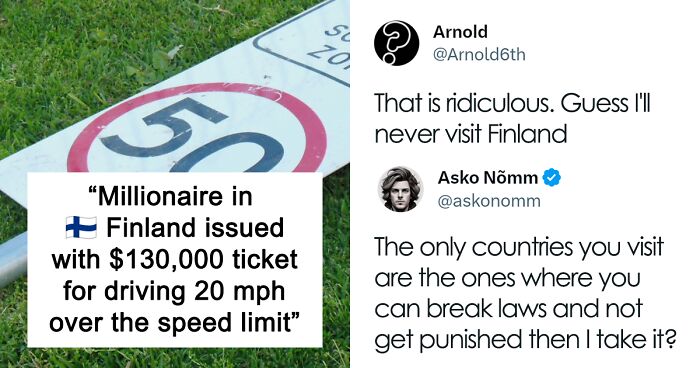
Businessman In Finland Faces $130K Speeding Fine Due To The Progressive Penalty System, Sparks Massive Discussion Online
The old legend about Robin Hood says that a ‘noble robber’ took money and goods from the rich, and then distributed them to the poor. The state machine in many modern countries pretends to act pretty much the same way. We usually call it a ‘progressive tax system’, although the question is not only related to taxes, but also, for example, traffic tickets.
It is believed that the world record for the heftiest speeding ticket was set in 2010 when a Swedish driver accelerated his sports car to 290 mph and had to fork out $1M and the car was confiscated by the police. A recent similar case in Finland, of course, did not reach the record, but became the reason for a new heated debate online.
Businessman from Finland got recently caught speeding around 2o mph over limit
Image credits: Michael Coghlan (not the actual photo)
Anders Wiklöf, a 76 Y.O. businessman from the Åland Islands in Finland, was stopped by traffic police a few days ago while driving around 50 mph as the limit was no more than 30 mph. The driver admitted that the road sign limiting the maximum speed from 43 to 30 mph appeared quite unexpectedly, so he simply did not have time to slow down. Fortunately, no one was hurt in the incident. But the remarkable thing, as you probably understand, was not that at all.
Image credits: Malou Efter Tio
Image credits: Suomen Yrittäjät ry
Finland has a traffic ticket system based particularly on the offender’s daily disposable income
For many years, Finland has had a specific and rather complex system of traffic fines, based not only on the severity of the incident and the presence of relapses in the offender, but also on the level of their daily disposable income, generally considered to be half their daily net income. Any police officer has access to the centralized tax service database, so that the system literally in a few seconds issues its decision on the size of the fine.
Image credits: spectatorindex
Image credits: truesteel23
Image credits: KongBTC
It just so happens that Mr. Wiklöf is the founder and chairman of a €350m-a-year (~ $376) holding company. The man is one of the richest people in the region, and, for example, the Wiklöf Holding Arena, the main sports facility of Maarianhamina, the capital of Åland, bears his name. As you may understand, the offender is quite a rich person, so the amount of the fine was already assumed to be rather hefty.
Image credits: UltraRareAF
Image credits: Turkish_007
Image credits: sbamueller (not the actual photo)
This was the third time the offender has been caught speeding so he has to fork out €121K now
An aggravating circumstance here was that in ten years, this was the third time that Wiklöf had exceeded the speed limit. In 2013, he received a fine of €63,680 (~ $68.5K), and five years later the speed-loving businessman had to fork out €95K (~ $102K). As a result, the amount of the new fine was €121K (~ $130K), and this is definitely one of the top ten largest traffic tickets world history has ever known.
Image credits: askonomm
Image credits: theRealNotJonas
Image credits: ksc0x
Image credits: abbeismAA
On the other hand, the violator became poorer by an amount that is equal to about half of his two-week income. In addition, Wiklöf’s driving license was suspended for 10 days. In an interview with the local newspaper Nya Åland, the millionaire admitted that he regrets what happened. “I had just started slowing down, but I guess that didn’t happen fast enough. It’s how it goes,” he said. Well, let’s hope that Mr. Wiklöf tries not to speed in the future…
Image credits: L-BBE (not the actual photo)
Image credits: stan1m1r
Image credits: jflowers515
Image credits: 0xb7cC3
Image credits: manamejaf
The previous ‘national record’ in Finland was set in 2002 and amounted to no less than €116K
By the way, the previous ‘national record’ for the ticket amount was set more than twenty years ago. In 2002 Anssi Vanjoki, a top Nokia executive, faced a €116K ticket (~ $124.8K) after being caught driving his Harley-Davidson 46 mph in a 30 mph speed limit zone. Just in that year, when another Finn, Markus Grönholm, became world rally champion, and Mika Hakkinen was the reigning ‘king’ of Formula 1. Yes, Finland has given the world some really outstanding racers…
Image credits: Abdulwahab Alawadhi (not the actual photo)
Image credits: qyfong04
Image credits: Kindel Media (not the actual photo)
People in the comments are of split opinions whether this system is fair or it provides some kind of indulgence for rich people
And seriously, this news caused quite a heated discussion on Twitter – not so much about speed limits, but about the fairness of the Finnish system for calculating traffic tickets. Some of the commenters speak out in support of the existing rules, while others believe that this is nothing more than just ‘punishing people for being successful’. “Fines are basically fees to break the law. If it’s proportional to income, then everyone has the same financial incentive to follow it,” some of the folks in the comments tweeted. And you know, it really begs lots of questions… What do you, our dear readers, think about it?
28Kviews
Share on FacebookMost interesting thing is the comments. A number of people seem to think he's being punished just for being rich, as if he hadn't committed a crime.
Yeah, and ignoring the fact that for people with a lot of income or wealth a regular fine can feel negligible enough that it simply becomes the cost of doing the thing they want do. If you’re paying a traffic fine it’s because you did something you shouldn’t have, and it should feel like punishment. 🤷
Load More Replies...We have this in the UK. if you can't afford the fine don't do the crime! Which he can, so he did. Ha. It's like rich people who will also park anywhere as they can afford the parking fine. They don't care.
Right? The one comment that was all, "imagine being punished for being successful." Um, no. He was punished for breaking the law. It just so happens that he was successful, which is why his fine sounds astronomically high to those of us who are not millionaires.
Load More Replies...The way I think about it is that the fine for speeding should be really high. The reason it's lower in most places is so the poorer people can actually pay it without going bankrupt. This leaves the rich viewing it as "the price for speeding". Which they can easily pay, like paying for a parking space. So, in reality, the rich are paying a fair price, it's the poorer people that are getting a lower price so they can afford to pay it.
I completely agree. I think it's nice for a change, to see a law that might actually make them think twice about committing the same act repeatedly. Especially the younger members of wealthy families who have positions due to nepotism and money. We've seen many times when those youths break the laws and have virtually no consequences. It's nice to have a law in place that ensures that there's a consequence for their actions. An $100- $170 tickets for speeding mean nothing to people like that but give them a $50,000- $90,000 ticket and that has some teeth. They're going to notice that ticket.
Load More Replies...Most interesting thing is the comments. A number of people seem to think he's being punished just for being rich, as if he hadn't committed a crime.
Yeah, and ignoring the fact that for people with a lot of income or wealth a regular fine can feel negligible enough that it simply becomes the cost of doing the thing they want do. If you’re paying a traffic fine it’s because you did something you shouldn’t have, and it should feel like punishment. 🤷
Load More Replies...We have this in the UK. if you can't afford the fine don't do the crime! Which he can, so he did. Ha. It's like rich people who will also park anywhere as they can afford the parking fine. They don't care.
Right? The one comment that was all, "imagine being punished for being successful." Um, no. He was punished for breaking the law. It just so happens that he was successful, which is why his fine sounds astronomically high to those of us who are not millionaires.
Load More Replies...The way I think about it is that the fine for speeding should be really high. The reason it's lower in most places is so the poorer people can actually pay it without going bankrupt. This leaves the rich viewing it as "the price for speeding". Which they can easily pay, like paying for a parking space. So, in reality, the rich are paying a fair price, it's the poorer people that are getting a lower price so they can afford to pay it.
I completely agree. I think it's nice for a change, to see a law that might actually make them think twice about committing the same act repeatedly. Especially the younger members of wealthy families who have positions due to nepotism and money. We've seen many times when those youths break the laws and have virtually no consequences. It's nice to have a law in place that ensures that there's a consequence for their actions. An $100- $170 tickets for speeding mean nothing to people like that but give them a $50,000- $90,000 ticket and that has some teeth. They're going to notice that ticket.
Load More Replies...
 Dark Mode
Dark Mode 

 No fees, cancel anytime
No fees, cancel anytime 


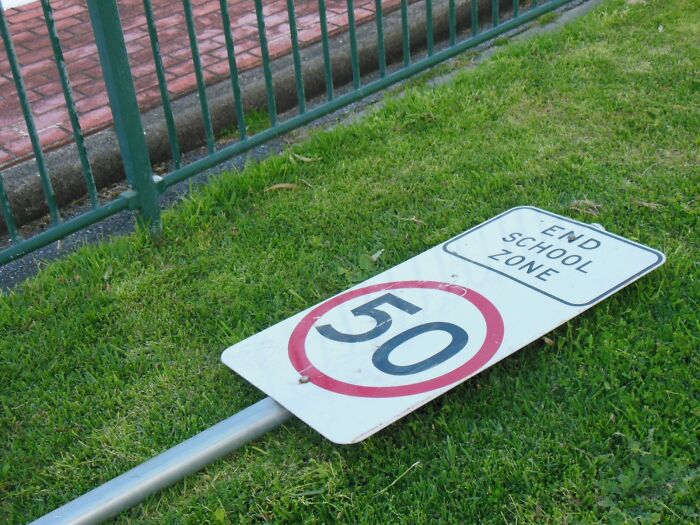


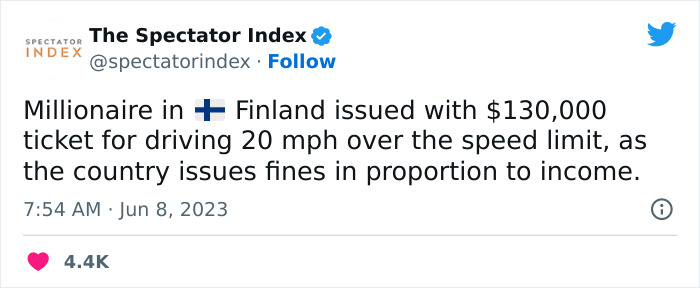

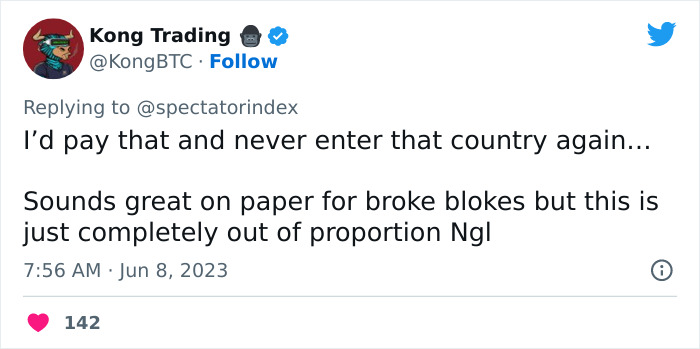




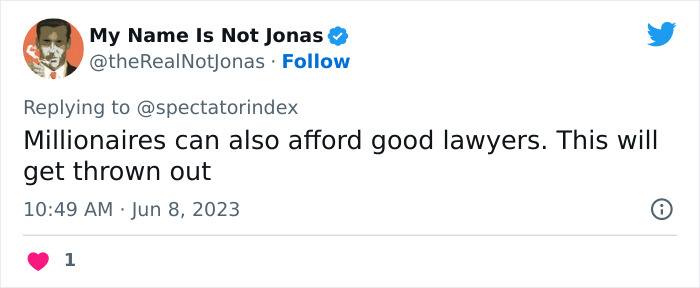
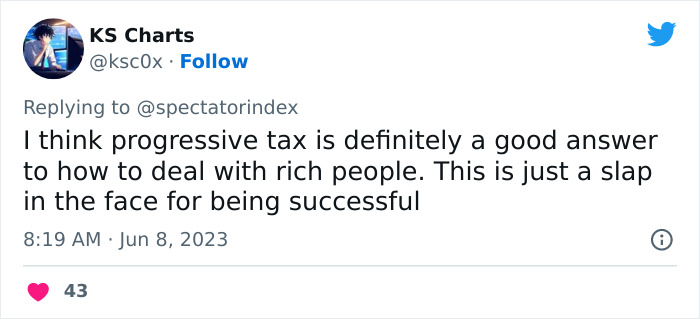
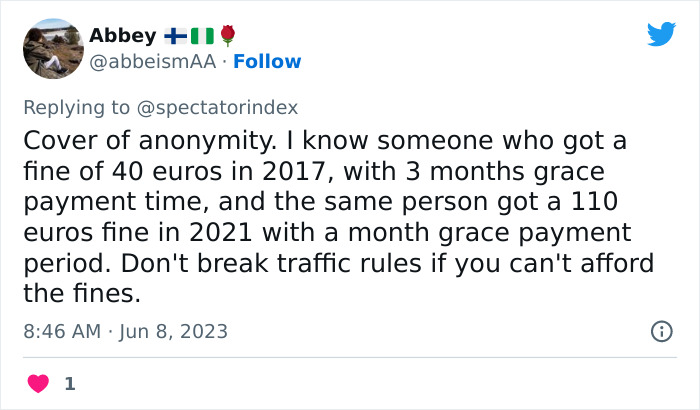


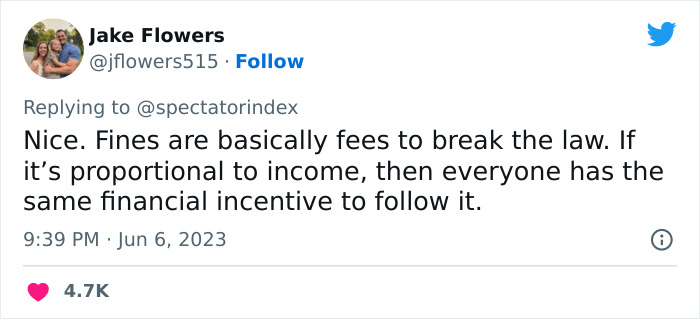




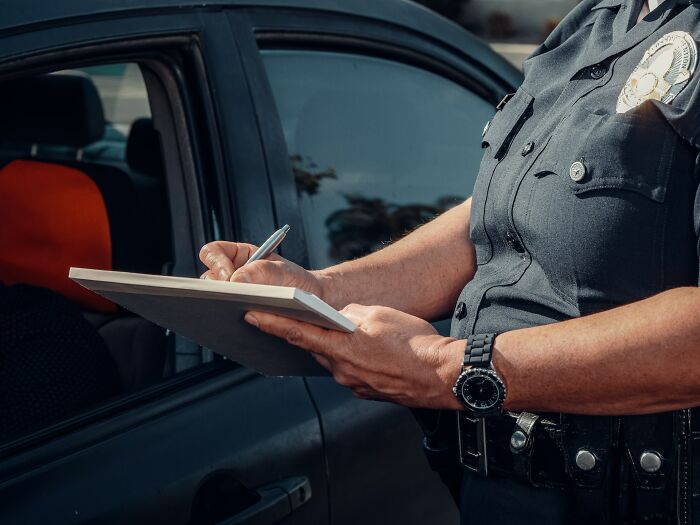












































103
85